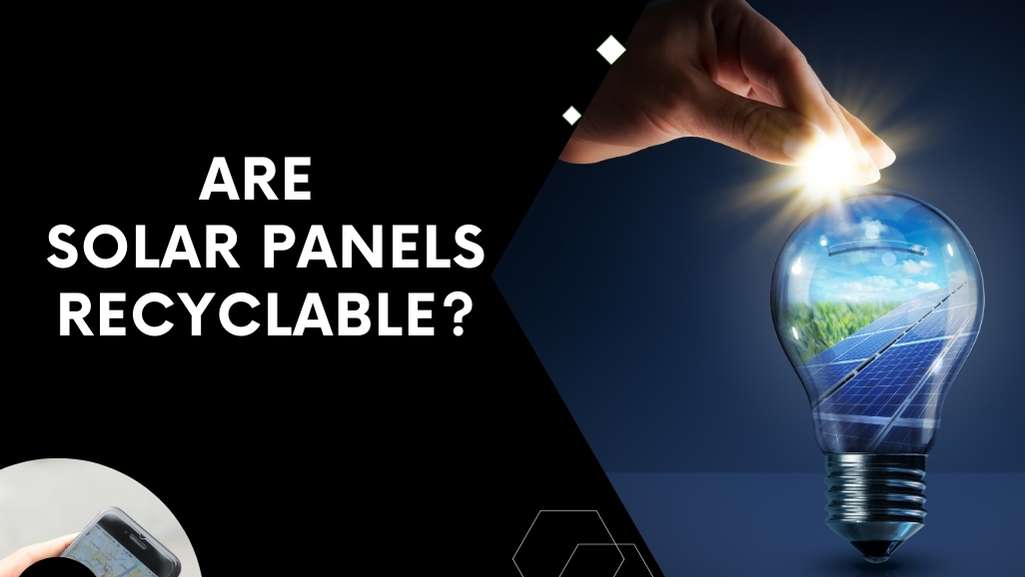Solar panels are a renewable energy source that can help reduce our reliance on fossil fuels. However, solar panels also have a limited lifespan, and they will eventually need to be replaced. When this happens, it is important to recycle solar panels properly to avoid environmental damage.
What are solar panels made of?
Solar panels are made up of a variety of materials, including:
- Glass: The glass covers the front of the solar panel and protects the solar cells from the elements.
- Silicon: The silicon cells are what convert sunlight into electricity.
- Aluminum: The aluminum frame supports the solar panel and protects it from damage.
- Copper wiring: The copper wiring connects the solar cells together and carries the electricity to the inverter.
Can solar panels be recycled?
Yes, solar panels can be recycled. In fact, most of the materials in a solar panel can be recycled, including the glass, silicon, aluminum, and copper.
How are solar panels recycled?
The solar panel recycling process varies depending on the recycler. However, most recyclers will follow these general steps:
- Disassembly: The solar panel is disassembled into its individual components.
- Cleaning: The components are cleaned to remove any dirt or debris.
- Separation: The components are separated by material type.
- Shredding: The components are shredded into small pieces.
- Melting: The shredded components are melted down into their raw material form.
- Reusing: The recycled materials are reused to create new products.
Benefits of recycling solar panels
There are a number of benefits to recycling solar panels, including:
- Reduces environmental impact: Recycling solar panels helps to reduce the amount of waste that goes to landfills.
- Conserves resources: Recycling solar panels conserves the natural resources that are used to make new solar panels.
- Reduces greenhouse gas emissions: Recycling solar panels helps to reduce greenhouse gas emissions by reducing the need to mine and transport new raw materials.
- Creates jobs: The solar panel recycling industry creates jobs in the collection, processing, and manufacturing of recycled solar panel materials.
Challenges of recycling solar panels
There are a few challenges to recycling solar panels, including:
- Cost: The cost of recycling solar panels can vary depending on the recycler and the location of the solar panels. However, the cost of recycling solar panels is decreasing as the technology improves.
- Availability: Not all recyclers accept solar panels. Additionally, some recyclers may only accept certain types of solar panels.
- Transportation: Solar panels can be bulky and heavy to transport. This can make it difficult and expensive to recycle solar panels that are located in remote areas.
Summary
Solar panels are recyclable, and there are a number of benefits to recycling solar panels. However, there are also a few challenges to recycling solar panels. As the solar panel recycling industry continues to grow, the cost of recycling solar panels is expected to decrease and the availability of solar panel recycling services is expected to increase.
What happens to solar panels when they are not recycled?
If solar panels are not recycled, they will typically end up in landfills. When solar panels are landfilled, they can release harmful chemicals into the environment. Additionally, landfilled solar panels take up space and can contribute to methane production.
How to find a solar panel recycler
There are a number of ways to find a solar panel recycler. You can search online, contact your local waste management company, or contact your state’s energy office.
What to expect when recycling solar panels
When you recycle solar panels, you can expect the following steps to be taken:
- The solar panels will be collected from your location.
- The solar panels will be transported to the recycling facility.
- The solar panels will be disassembled into their individual components.
- The components will be cleaned to remove any dirt or debris.
- The components will be separated by material type.
- The components will be shredded into small pieces.
- The shredded components will be melted down into their raw material form.
- The recycled materials will be reused to create new products.
Tips for recycling solar panels
Here are a few tips for recycling solar panels:
- Find a reputable solar panel recycler.
- Make sure the recycler is licensed and insured.
- Ask the recycler about their recycling process.
- Get a quote from the recycler before you commit to having your solar panels recycled.

